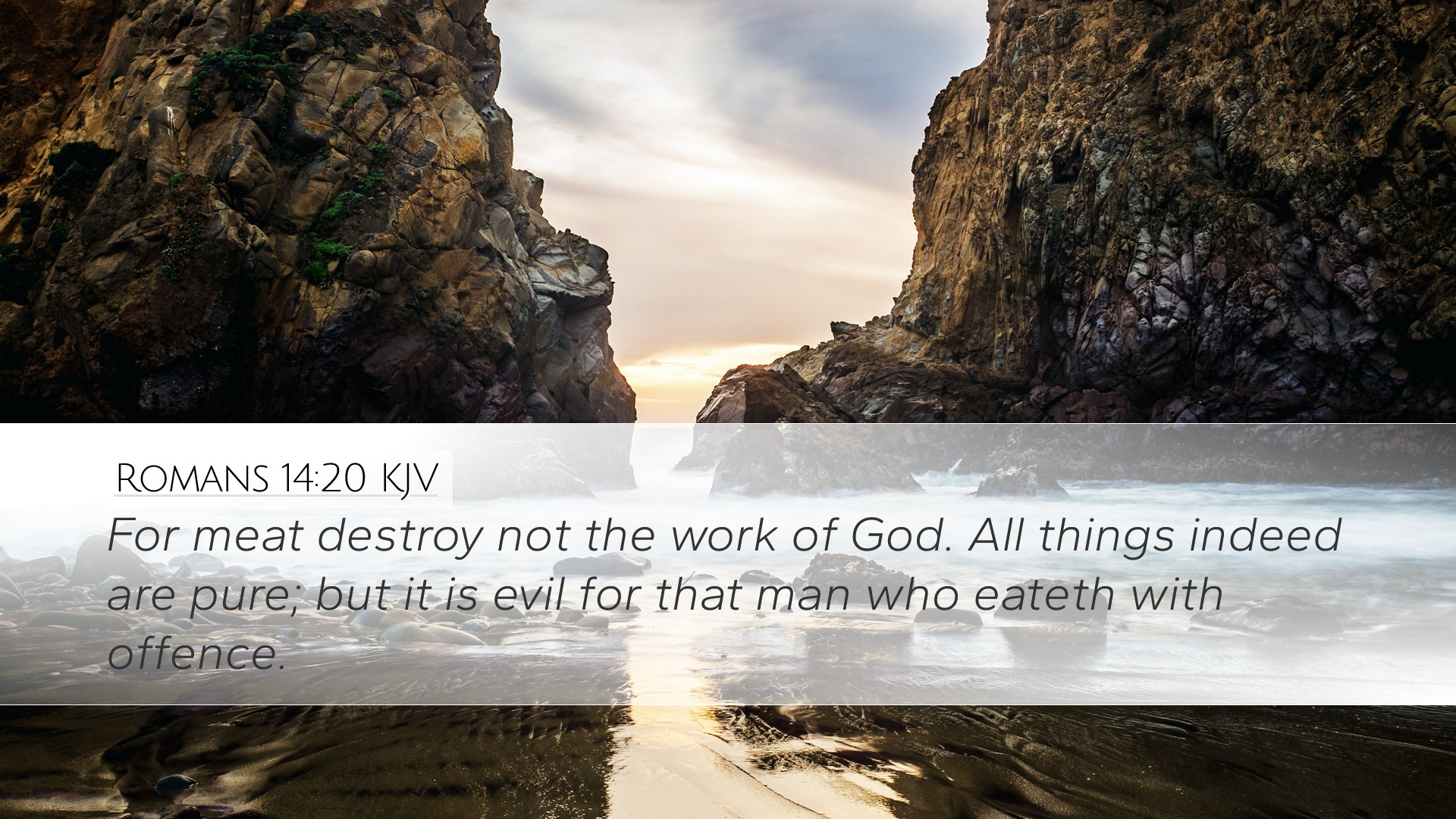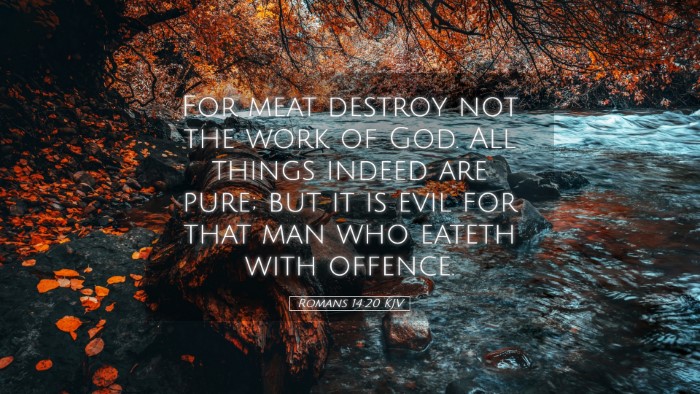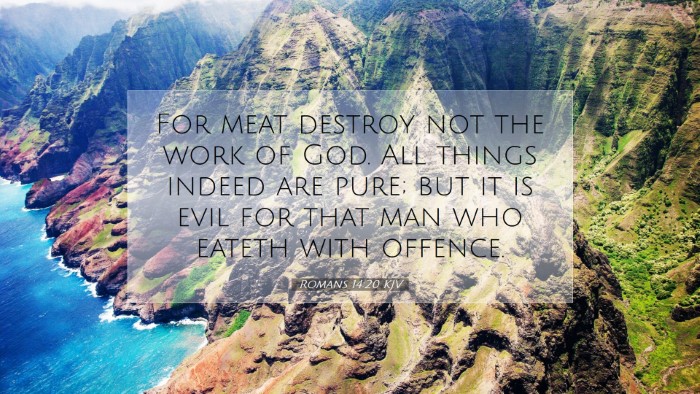Old Testament
Genesis Exodus Leviticus Numbers Deuteronomy Joshua Judges Ruth 1 Samuel 2 Samuel 1 Kings 2 Kings 1 Chronicles 2 Chronicles Ezra Nehemiah Esther Job Psalms Proverbs Ecclesiastes Song of Solomon Isaiah Jeremiah Lamentations Ezekiel Daniel Hosea Joel Amos Obadiah Jonah Micah Nahum Habakkuk Zephaniah Haggai Zechariah MalachiRomans 14:20
Romans 14:20 KJV
For meat destroy not the work of God. All things indeed are pure; but it is evil for that man who eateth with offence.
Romans 14:20 Bible Commentary
Commentary on Romans 14:20
The verse Romans 14:20 states:
"For meat destroy not the work of God. All things indeed are pure; but it is evil for that man who eateth with offence."
Contextual Analysis
This verse resides within the broader discourse of Romans 14, where the Apostle Paul discusses the complexities of faith, personal convictions, and the communal aspect of Christian living. He addresses a significant conflict in the early Church centered around dietary practices, particularly the consumption of meat that may have been sacrificed to idols.
Understanding the Implications
Paul emphasizes the need for unity and compassion among believers. Notably, he underscores that while all things may be deemed pure, the exercise of one's freedom in Christ should not lead to the downfall of another's faith.
Matthew Henry's Insights
Matthew Henry eloquently points out that the phrase "destroy not the work of God" underscores the gravity of actions that could undermine a fellow believer's faith. He echoes the idea that God's work, which includes both the transformation of individuals and the building of community, should not be jeopardized by trivial matters. Henry asserts that while in Christ all things are ultimately pure, the sensitive nature of our fellow believers requires care and consideration.
Albert Barnes' Commentary
Albert Barnes elaborates on the notion that Christians must not allow their liberties to become a stumbling block to others. He posits that the emphasis in this verse is on mutual edification rather than indulgence. Barnes highlights that although the act of eating certain foods may not be inherently sinful, if such actions cause someone with a weaker conscience to stumble, it becomes moral evil in that context.
Adam Clarke's Perspective
Adam Clarke sheds light on the historical and cultural context surrounding dietary laws and the eating of meat. He understands Paul’s message as a call for sensitivity: those who are "strong" in faith should refrain from exercising their liberties in a way that could harm those who are "weak." Clarke argues that a believer's behavior should be governed by love and respect for the spiritual well-being of others, rather than sheer personal freedom.
Overall Theological Implications
The theological implications of Romans 14:20 extend beyond dietary restrictions; they touch upon the essence of Christian ethics, community life, and the exercise of freedom. The Apostle Paul encourages believers not only to consider their own standing before God but also to be mindful of how their choices affect others.
Practical Applications for Contemporary Believers
- Promote Unity: Christians today are called to prioritize unity within the body of Christ over personal liberties. This requires a commitment to understanding and compassion.
- Respect Individual Convictions: In a diverse community, it is crucial to respect the differing convictions of fellow believers regarding moral and ethical issues.
- Exercise Love: Acts of love should guide decision-making; believers should ask themselves whether their actions could be a stumbling block to someone else.
- Focus on Edification: All actions should be focused on building up and encouraging fellow believers rather than causing division or harm.
Conclusion
Romans 14:20 offers profound insights into how freedom in Christ is to be understood and applied within a community of faith. The teachings of Matthew Henry, Albert Barnes, and Adam Clarke converge on the importance of love and unity. In navigating the complexities of personal convictions and communal integrity, the guidance found in this passage remains relevant to modern believers seeking to live out their faith in harmony with one another.


